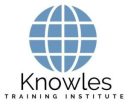Effective Communication and Active Listening Skills training courses in Brussels, Belgium

Effective communication lies at the heart of successful relationships, teamwork, and leadership. In professional environments, the ability to convey ideas clearly and listen actively ensures mutual understanding, reduces conflict, and enhances collaboration. In Brussels — a diverse and international city home to the European Union, multinational corporations, and global organizations — mastering communication and active listening is especially critical. Professionals here must adapt their communication styles to multicultural settings, navigate language differences, and engage with stakeholders from various backgrounds.
The Effective Communication and Active Listening Skills Training in Brussels, Belgium provides participants with the essential tools to improve clarity, empathy, and influence in their daily interactions. This course covers the core principles of effective verbal and non-verbal communication, teaches techniques for active listening, and equips participants with strategies for building trust and understanding across cultures. Training includes interactive workshops, role-playing scenarios, and case studies designed to reflect the unique challenges of Brussels’ international business environment.
Module 1: Introduction to Effective Communication
Defining communication in professional and multicultural contexts
Barriers to effective communication and how to overcome them
The role of communication in building relationships and organizational success
The link between communication and leadership credibility
Module 2: Fundamentals of Active Listening
Understanding the difference between hearing and listening
Key principles of active listening
Demonstrating empathy and attentiveness in conversations
Avoiding common listening traps and distractions
Module 3: Verbal and Non-Verbal Communication
Using tone, clarity, and pace effectively
The power of body language and facial expressions
Cross-cultural differences in communication styles
Aligning verbal and non-verbal signals for credibility
Module 4: Questioning and Clarification Techniques
The art of asking open and probing questions
Clarifying and paraphrasing for mutual understanding
Encouraging dialogue and engagement in conversations
Avoiding misinterpretation in multilingual environments
Module 5: Building Trust and Rapport
Establishing credibility through communication
Using empathy to strengthen professional relationships
Tailoring communication to diverse audiences
Creating a safe space for open dialogue
Module 6: Managing Difficult Conversations
Strategies for handling conflicts constructively
De-escalation techniques in tense situations
Delivering feedback respectfully and effectively
Balancing assertiveness with empathy
Module 7: Communication in Teams and Organizations
Enhancing collaboration through effective communication
Active listening in team discussions and meetings
Creating inclusive communication in multicultural teams
The role of communication in organizational culture
Module 8: Digital and Remote Communication
Best practices for email, video conferencing, and chat platforms
Maintaining engagement in virtual meetings
Active listening in digital interactions
Ensuring clarity and professionalism across communication channels
Communication is not just about speaking — it is about creating understanding. In an international hub like Brussels, where professionals from diverse backgrounds collaborate daily, effective communication and active listening are essential for success. The Effective Communication and Active Listening Skills Training in Brussels, Belgium equips participants with the ability to express themselves clearly, listen with empathy, and engage meaningfully with others. By completing this program, individuals will gain the confidence and skills to strengthen their professional presence, improve teamwork, and contribute to a culture of trust and collaboration in their organizations.
